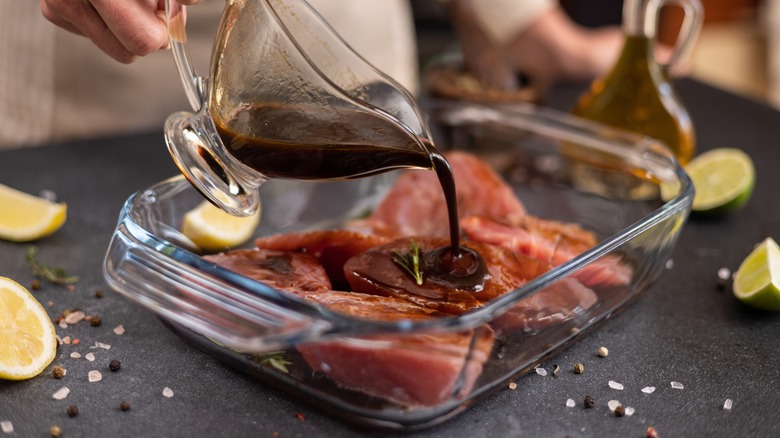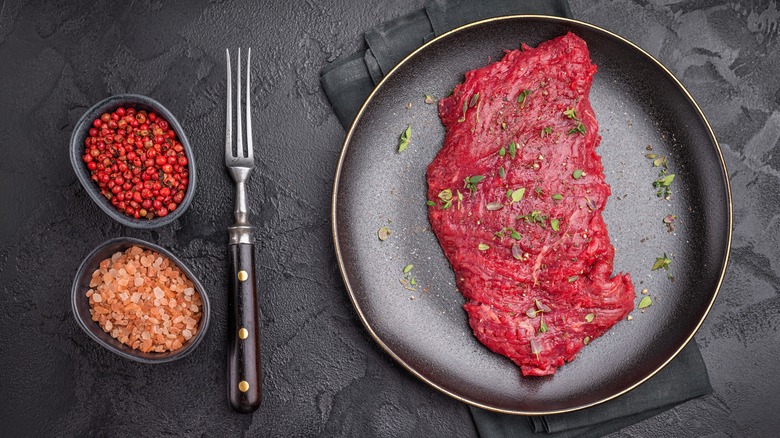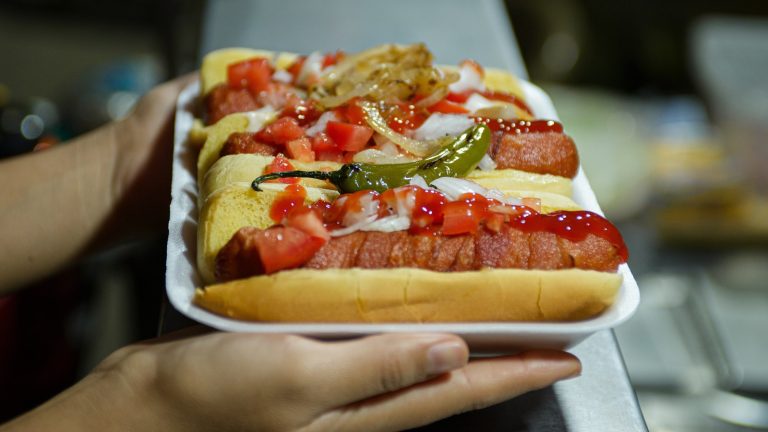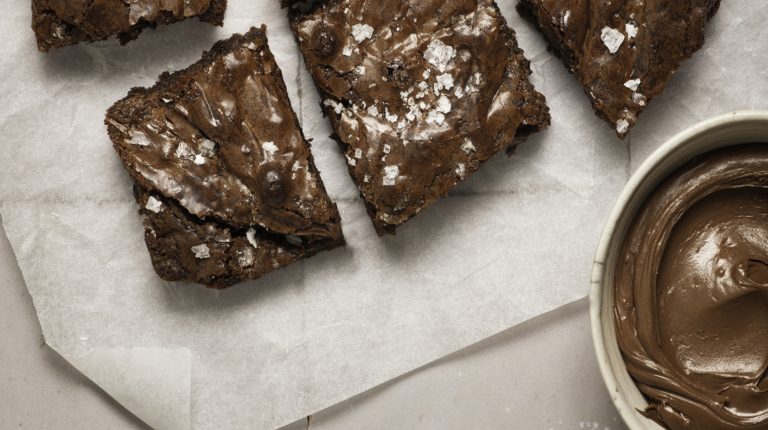Summer’s here, foodies! And that means one thing: It’s grilling season. Get your barbecues fired up and your butchers on speed dial: ’tis the season for juicy, tender, flavorful steaks. Certain cuts — the ribeye, for example — are marbled with buckets of uber delicious fat that renders and tenderizes the meat as it cooks, making for a more naturally tender steak. However, others, like flap steak, are less blessed. In order to truly bring out their best qualities, the meat needs a helping hand. That’s where marinades come in. These magical concoctions use a combination of acids (and other ingredients) to break the proteins in a tough cut of beef down, tenderizing it for that perfect bite.
To find out more about the best kind of ingredients to use for a great flap steak marinade, we spoke to Executive Chef Russel Kook of The Bellevue in Chicago, Illinois. For him, big flavors are the key: “Flap steak benefits from bold, layered marinades,” he told us. “I typically start with a neutral oil that has a high smoke point, like grapeseed or avocado oil. Then I add ingredients like soy sauce for umami, pineapple juice or another acidic fruit juice for tenderizing, and aromatics like garlic, ginger, and chili flakes.” Crucially, your marinade needs to have balance, to avoid overpowering the natural beefy flavor of your steak. “A touch of lemon juice or vinegar adds brightness, and ground black pepper gives it a finishing kick. This combo balances flavor while helping break down the tougher fibers in the cut,” he said.
The specific ingredients you need to tenderize your flap steak
Marinades are best used to bring tougher cuts of beef up to par when it comes to making soft, tender steaks. It’s all to do with the science of how different ingredients break down muscle fibres, which are responsible for tough, chewy meat when they contract under the intense heat of a grill. But out of all the ingredients which you could conceivably use to tenderize your meat, which are the best? “One of my go-tos is pineapple juice,” Russel Kook told us. “It contains natural enzymes like bromelain, which break down muscle fibers and connective tissue, making the meat noticeably more tender.”
Bromelain is famous for its tenderizing abilities, and is often sold as a powder that you can sprinkle over meat or mix into a marinade on its own. But it occurs naturally in pineapple juice, where the sugars that are also in the juice caramelize when the meat hits the grill, helping you develop a delicious depth of flavor and a beautiful char on the outside of your steak. You might not think it, but it’s possible to actually marinate your meat for too long. “Be careful not to marinate for too long with pineapple juice or it can over-tenderize and affect the texture,” Kook said. How long should you marinate your flap steak for? “I usually recommend 1 to 2 hours max with that ingredient.”
Some steps to take when cooking your steaks to ensure they come out juicy
While a marinade is a quick, easy, and delicious way to ensure that tougher cuts of steak come off the grill juicy and tender, they’re not a one size fits all solution — and they aren’t always enough to ensure a great cook on your steak. Rather, if you’re going to be a true master of the grill, you’ll need to use the right techniques for the steak that you’re cooking. While steak is usually cooked quickly, with a hard sear over a super high heat, Russel Kook actually recommends doing the opposite, at least when it comes to tougher cuts of meat like flap steak. “The biggest key is to cook the meat low and slow,” he told us. “This method gives the collagen and connective tissue time to break down, which helps retain moisture and enhances tenderness.”
It’s also important to keep an eye on your steak’s temperature: Using a probe thermometer for accuracy. “Also, avoid overcooking,” Kook warned: “Tougher cuts like flap steak or chuck can become dry if pushed past medium.” Finally, make sure you give your steak a few minutes to rest once it comes off the grill. “Resting the meat after cooking is another important step; it allows the juices to redistribute, giving you a juicier bite,” he said. A good rule of thumb is to rest your steak for five minutes for every inch of thickness. Happy grilling!






